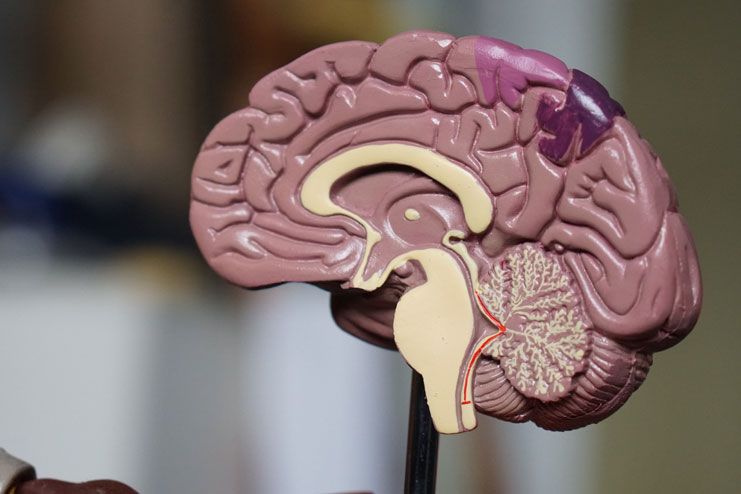Affiliate Disclaimer
Some links in this article are affiliate links. We may earn a small commission if you make a purchase through these links, at no extra cost to you. We only recommend products we find useful to our readers“What kind of sleeping position do you prefer sleeping in? Is it on your back, side or stomach?” When this question was asked to people, 16% of them said that they prefer sleeping on their stomach. While the percentage is not much, there are ample reasons sleeping on your stomach is bad for your health.
If you have heard growing up that sleeping on the back is the best, it is likely not the best as well; neither is sleeping on your stomach. But, it is important to know why that is the case.
Here, we have researched and listed out some of the side effects of sleeping on your stomach that you didn’t know of.
What Happens if You Sleep on Your Stomach?
 If you don’t have time to read through and want a short answer to whether or sleeping on your stomach is bad for you, the answer is yes.
If you don’t have time to read through and want a short answer to whether or sleeping on your stomach is bad for you, the answer is yes.
This might come off as a contradiction mainly because sleeping on the stomach has positive benefits in helping improve the condition of sleep apnea and reduce snoring.
But, in the long run, it does have bad impacts on the back and spine health.
When you hamper your spine and back health, the same directly impacts your sleep quality as well.
So, to answer, yes, it is better that you avoid sleeping on your stomach.
Let us take a look at some of the negative effects, shall we?
1. Affects the Spine Health

When it comes to the negative effects of sleeping on your stomach, the impacts on spine health are the ones highlighted the first.
According to research conducted (R) by Mayo Clinic, it was found that sleeping on your stomach puts a direct strain on the back and spine.
Prolonged sleeping in that position takes a toll on your back and spine health and can induce pain.
The research why there is a direct strain on the spinal health and the back is because of the sole weight centralized in the middle of the body. This disturbs the neutral spine position of the body, inflicting pain and discomfort.
Often, the constant stress on the spine also affects the neural functions in the body. You might also experience a numbing feeling in certain parts of the body after a night’s sleep.
2. Direct Impacts on the Neck
 Another one of the common reasons why sleeping on your stomach is bad is because it puts a direct strain on the neck and causes pain and stiffness.
Another one of the common reasons why sleeping on your stomach is bad is because it puts a direct strain on the neck and causes pain and stiffness.
Since you can’t breathe through the pillow while sleeping on your stomach, it is likely that you will have your head and neck turned towards one side.
This puts the head, neck, and spine out of alignment, putting excess strain on the system.
The damage caused because of this misalignment is evident in the long run. You are not likely going to experience the impacts after a day or two of sleeping on your stomach.
One of the most drastic impacts that you might experience is a herniated disc. Not only does it cause irritation, but it can also inflict unbearable pain and can affect your quality of sleep at night.
If you have been experiencing pain in the initial days of sleeping on your stomach, put a stop to that and change the position to something more comfortable.
3. Might Affect Gut Health

There are not many studies to back this claim but doctors believe that sleeping on the stomach can affect your gut health.
Since you are on your stomach, the pressure is completely localized on the abdomen, where the GI tract is present.
When you sleep on your stomach, there are chances for the organs to stay squished like that until you move around the bed.
Persistent and prolonged sleeping habits on your stomach can affect your digestion and make you feel bloated and uncomfortable.
This is the reason why it is suggested to sleep on your side, especially if you already have complaints about your gut health and digestion.
4. Affected Blood Flow to the Brain
 When you are sleeping on your stomach, it is likely that you will have your head twisted on the side, causing a misalignment.
When you are sleeping on your stomach, it is likely that you will have your head twisted on the side, causing a misalignment.
In one of the conducted studies back in 1977 with 60 children, the researchers found that sleeping on the stomach with the neck twisted hampers the blood flow to the brain.
This was a very small study and nothing new has been proposed to date. But, it is always better to be safe than sorry, right?
If you have high cholesterol levels, this is a factor that you need to pay even more close attention to. Sleeping on the stomach can often impact the level of oxygenation because of the reduced blood flow, enhancing the risks of strokes.
5. Hampered Breathing

Sleeping on your stomach can compress your chest, directly impacting the breathing efficiency of an individual.
The lack of oxygen supply throughout the body can hence make you less energetic when you wake up the next morning.
Another rare occurrence that happens is the direct impacts on the soft tissues of the chest region. Prolonged impacts on those tissues later enhance the risks of mastitis and cysts.
6. Not Suitable for Pregnant Women
 It is common sense that pregnant women can’t sleep on their stomach in the later phase of their pregnancy but what about the earlier months?
It is common sense that pregnant women can’t sleep on their stomach in the later phase of their pregnancy but what about the earlier months?
When you are in the early stages of pregnancy, it is important to be cautious about your sleeping position.
Since the body needs maximum rest, it is important that one keeps an eye out on the way they are sleeping. Sleeping on the stomach impacts sleeps quality and other body functions, affecting the quality of life of a pregnant woman.
Even a conducted study (R) found that sleeping on the left side is considered the best for a pregnant woman. Not only does it enhance the blood circulation to the fetus, but it also channels optimal levels of oxygen for the mother and the growing baby.
7. Puffiness on the Face

Every single person wakes up to a puffy face to some degree. But, if you sleep on your stomach, chances are that the same will be more evident. Apart from the imprints of the pillow scattered all over your face, puffiness is one of the most common side effects of sleeping on your stomach.
The constant pressure on the face affects the blood circulation to the face, making it seem more dull and puffy than normal.
When this habit of sleeping on your tummy becomes permanent, the same affect the elasticity of the skin, thereby quickening the signs of aging as well.
How to Stop Sleeping on Your Stomach?

If you are a creature of habit, it is likely that it will become hard for you to stop sleeping on your stomach out of nowhere.
Don’t do that because you won’t witness positive results with that.
Even if you are not able to stop doing this, try alternating your sleeping positions. Instead of going to sleep on your stomach, sleep on your side instead.
Once you get a hang of it, chances are that your body will become attuned to the change and not go back to the old habit.
How to Prevent From Turning on Your Stomach While Sleeping?

Now that you know how bad the negative effects of sleeping on your stomach are, it is likely that you are looking for ways to stop doing that.
There are a number of ways you can get rid of that habit.
The very first and most effective way is to use a body pillow to help you with the transition. Start by practicing a partial stomach sleeping with the pillow.
Another common “remedy” kind of way that works is by keeping a tennis ball in your pocket. This helps prevent you from repositioning your body to sleep on your stomach.
Every time that you try to sleep on your stomach, the ball poses as an obstruction, waking you up.
Knowing the reasons for sleeping on your stomach is bad is important. It does have grave side effects on your body which you can prevent with small changes to your sleeping routine. Don’t wait for this habit to wither away. Instead, take the necessary actions today before it is too late.
In this Article


















